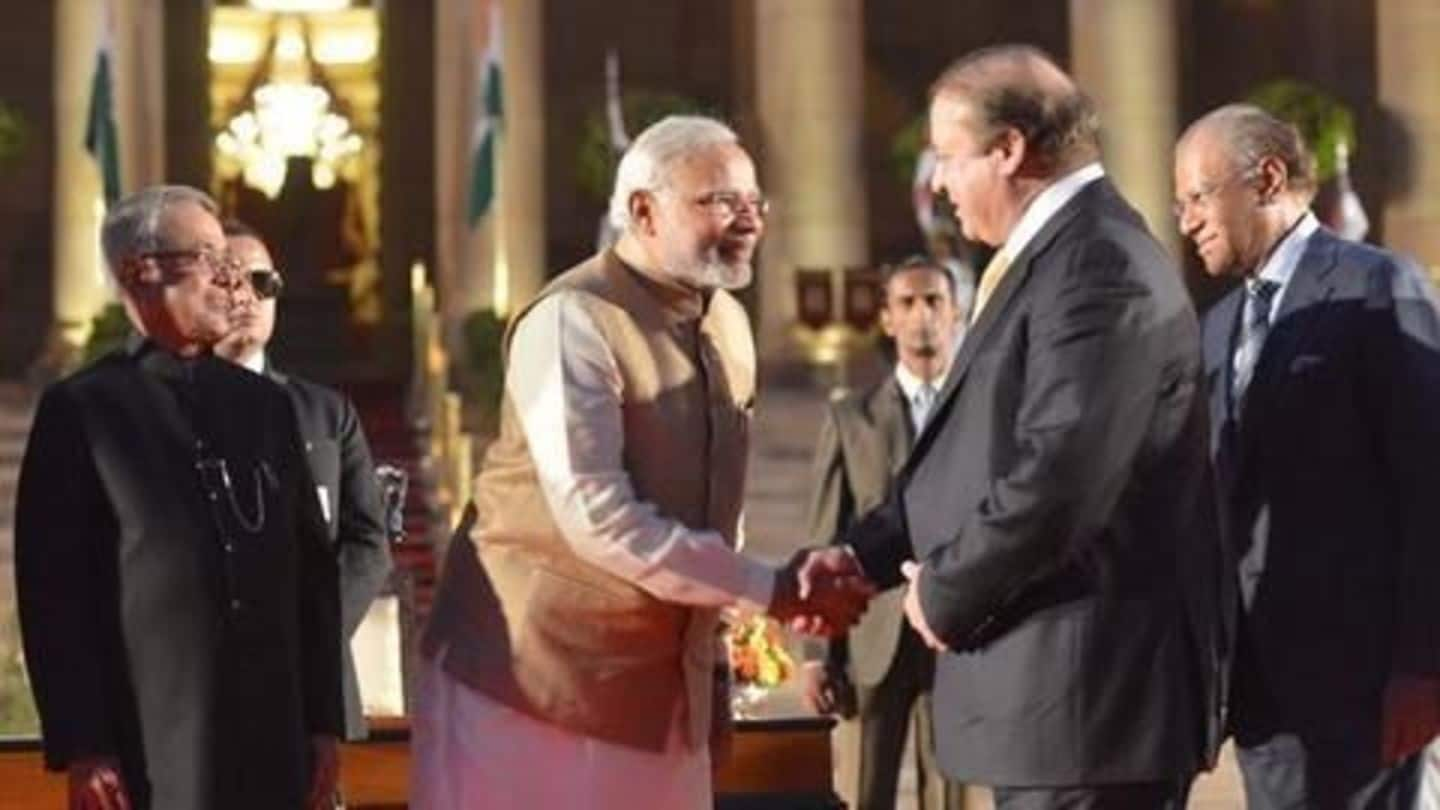
How Sharif's resignation as Pakistan's PM may impact India
What's the story
The aftermath of Pakistani PM Nawaz Sharif's ouster is being closely watched by India. So far, the Indian government has stayed silent, refraining from calling it an "internal matter," described by TOI's Indrani Bagchi as a standard reply. Yet there are concerns of instability and a greater role for Pakistan's Army. In this timeline, we look the possible impact of Sharif's ouster on India.
28 Jul 2017
Panama Papers: Pakistan PM Nawaz Sharif disqualified from holding office
On July 28, the Pakistani Supreme Court disqualified Prime Minister Nawaz Sharif from holding office over the Panama Papers case. It has also referred the case against him to the National Accountability Bureau (NAB). The 2016 Panama Papers leak revealed details about Sharif's illegal assets in London that he allegedly acquired in the 1990s.
More powerful army
Army could get more emboldened by Sharif's departure
The Pakistani Army will get further emboldened by Sharif's departure, according to Indian foreign policy expert Chari. This will give the army power to drive policy unimpeded and in particular, its nefarious designs towards India. Sharif's replacement may be more willing to agree to the army's demands. Sharif, however, was reluctant to accept the army's India strategy but could do little to stop it.
Indo-Pak dialogue
Experts: A huge setback for Indo-Pak ties
Sharif's resignation represents a setback for chances of headway in the stalled Indo-Pak bilateral dialogue. During his three tenures as Pakistan's leader, Sharif was seen as more keen to open up dialogue with India than others. The impetus to take forward the dialogue will now rest over the Pakistan's caretaker PM and in particular, who emerges as the winner of the country's 2018 election.
Quote
Volatility and uncertainty in Pakistan
"There is going to be internal instability there and this will impact India as well," said Former High Commissioner of India to Pakistan TCA Raghavan. Volatility in Pakistan adds "greater risks in relations between India and Pakistan," said G Parthasarathy, another former Indian envoy.
Political parties
Sharif's woes could benefit Imran Khan's Pakistan Tehreek-i-Insaf
Sharif's ruling PML (N) party, whose reputation has suffered due to the development, was seen as a better bet for India compared to the rival Bhutos-led PPP. Pakistan now faces a weakened PML (N) and a nearly non-existent PPP, which could facilitate the rise of former cricketer Imran Khan's Pakistan Tehreek-i-Insaf. Khan's party is widely perceived as the army's creation.
Pakistani terrorists
Sharif was unpopular among anti-India terror groups
Sharif was never popular among Pakistan-based anti-India jihadi groups such as the Hafiz Saeed-led Jamat ud Dawa (JuD), who was delighted by the court's decision to disqualify him. Sharif however did little to stop attacks by Pakistan-based outfits against India. "To that end, the downfall of Sharif won't really affect the security situation," wrote Indian defense expert Syed Ata Hasnain in Swarajya.